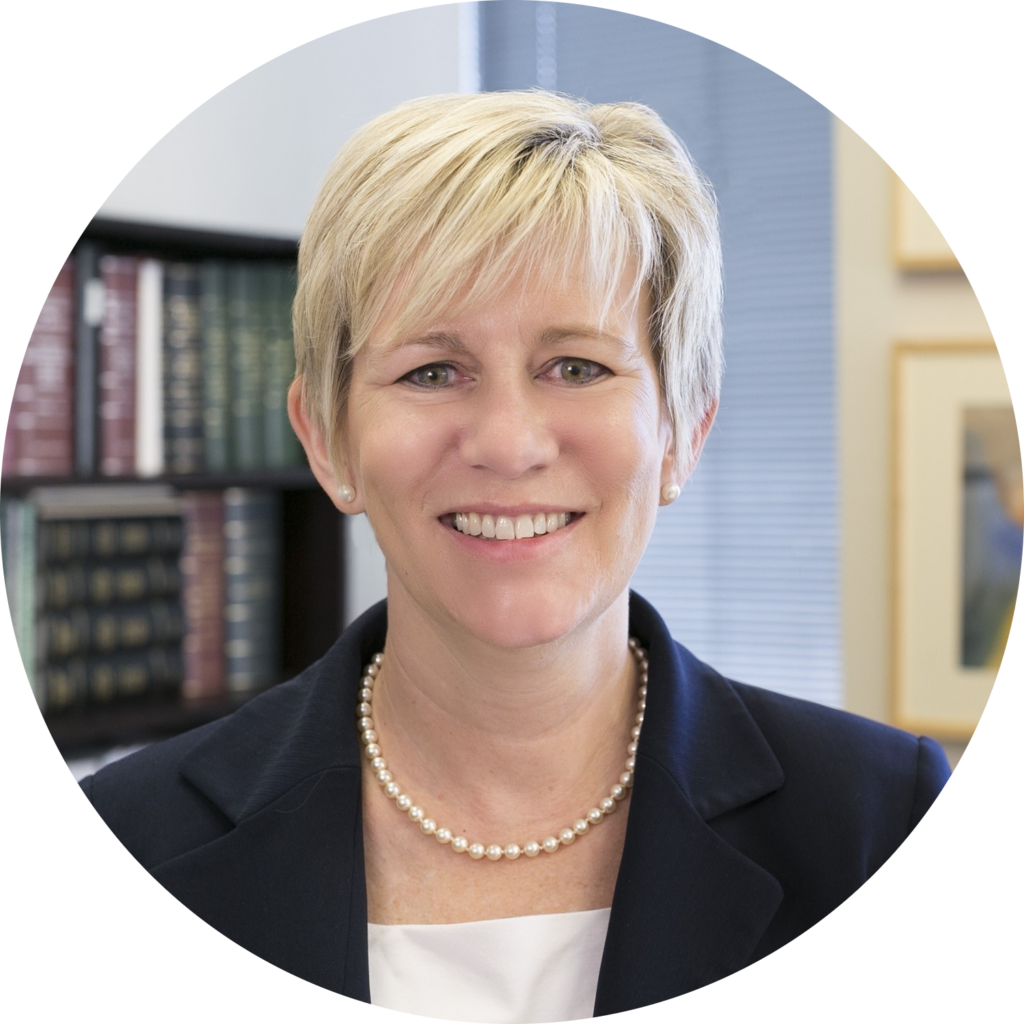- Member Spotlight
Elizabeth M. Columbo, Nixon Peabody LLP
Elizabeth Mihalyak Columbo, who started out with the New York Metropolitan Transportation Authority while she was still in law school, has been lucky enough to enjoy a couple of great career opportunities, including her current position at Nixon Peabody LLP.

Tell us a little bit about yourself.
I am a partner in the public finance group of Nixon Peabody LLP In New York. My career in public finance started back in 1992 as a public finance legal intern at the New York Metropolitan Transportation Authority while I was still in law school. I did not know anything about public finance when I accepted the job (I had been working as a corporate finance analyst prior to law school), but it turned out to be the best job I ever had (and not just because of the unlimited ride Metro card that I received as a benefit while working there).
When I am not working, I spend much of my time with my family in Vermont going to the theater to see plays and musicals, taking piano lessons, or walking my dog. I serve as a member of the board of a non-profit theater in New Jersey, which fuels my passion for theater. I also love to travel and to cook, so it is not surprising that one of my favorite trips in recent years has been to Italy to attend a cooking school in Tuscany.
How has your NABL membership been valuable to your career?
NABL has been an invaluable resource to me in many ways over the years – from attending my first NABL conference and understanding that I was part of a larger community of public finance practitioners to relying on the many substantive legal resources that NABL makes available to its members. The ability to connect with, learn from and network with other professionals in the public finance industry throughout the country has been a tremendous source of strength and support for me both personally and professionally throughout my career.
As a NABL volunteer, what are some of your favorite moment(s)?
One of my favorite moments volunteering was helping with the white paper on the changes to the securities laws after the adoption of the National Securities Markets Improvement Act. It was a great opportunity for me as a young lawyer to work with and learn from the experts in public finance, and it expanded my professional network in a way that I still benefit from all these years later.
What advice would you share with someone who is starting out in public finance?
Enjoy the learning process and understand the important role of public finance. There are not many law schools that offer classes on public finance, and it may seem overwhelming at first. But law school taught you the basics of what you need to know to become a public finance lawyer – contracts, statutory interpretation, securities law, real estate law, federal and state constitutional law, bankruptcy, secured lending, Dillon’s rule, home rule, administrative law and tax law, among others. Public finance transactions require the lawyers to navigate through all of these areas of law with an understanding of both the financial markets and the financial operations of municipal issuers. You will be helping to build schools, parks, housing, health care facilities, roads, stadiums, renewable energy, and other infrastructure. You will meet and collaborate with smart, dedicated people to achieve common goals, and it will be challenging and rewarding in ways you never could have imagined.
If you were stranded on an island – what three books would you want to have with you?
The three books I would want to have with me are:
(i) The Secret Knowledge of Water by Craig Childs. A well-written book about the author’s experiences in the deserts of the US Southwest and about his searches for water and his experiences with floods. As the cover of the book says – there are two ways to die in the desert: thirst and drowning.
(ii) Pride and Prejudice by Jane Austen. A classic and a book I go back and reread.
(iii) The Anatomy of Hope by Jerome Groopman, M.D. This book was given to me after my first cancer diagnosis (I have had four unrelated cancers diagnosed in the past 20 years) in December 2003. While I can’t credit this book as being the reason why I hope to celebrate 20 years of survivorship later this year, it did help me through the first and each subsequent diagnosis and treatment and to understand that hope, realistic hope, was an important part of my overall experience.